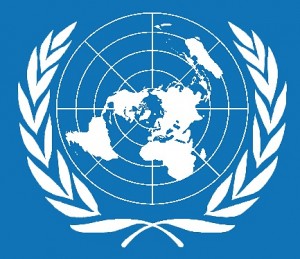 Negotiations for a final document at the UN Commission on the Status of Women were supposed to end more than a week ago. However, they dragged on for another several days and resulted in a stinging defeat for the Obama administration and anger on the part of the developing world.
Negotiations for a final document at the UN Commission on the Status of Women were supposed to end more than a week ago. However, they dragged on for another several days and resulted in a stinging defeat for the Obama administration and anger on the part of the developing world.
The US was trying to impose its sexual and reproductive rights agenda and in a dramatic showdown, delegations scuttled a final document rather than accept the US proposal.
Delegations openly resented the US emphasis on sexual and reproductive rights, and were particularly offended at being strong-armed by the US during negotiations for the resolution on maternal mortality. However, the US was able to push that resolution through without toning down their sexual and reproductive rights emphasis.
In the maternal mortality resolution, the US delegation insisted on new language that delegations feared could advance a right to abortion. Delegates were also concerned about references to “age appropriate sexual education” that did not acknowledge the role of parents, as well as dubious references to “gender.”
Negotiations on the final document, called “agreed conclusions,” were extended a week longer than expected because consensus could not be reached. Delegations carried negotiations well into the early hours of last Thursday, when the commission concluded its session, but the US would not budge, causing the negotiations to fail.
Michelle Bachelette, the head of UN Women, spoke to the delegates at the closing of CSW. She was disappointed by the commission’s “inability to reach consensus.” Several delegations voiced their frustration with the ideological rigidity of the US and other delegations in the reproductive rights camp.
The delegate from Zimbabwe, speaking for the African Group, complained about the position of “only one delegation” that had caused the process to falter. She also clarified that the African Group believed the use of the word “gender” referred to male and female, as outlined in previous international documents, and emphasized the sovereign prerogative of African nations to do so.
The Iranian delegation made a statement lamenting that a “tender bridge (consensus) collapsed last night at around 1:00am…only because of the intransigence, hardball playing and lack of flexibility on the part of one side of the room over issues that were not germane to the text.” Iran reproached these parties for coming to the negotiating table with “a mindset of achieving all they want, with no flexibility.”
On the opposite side of the negotiating table was the ambassador from Norway, who bluntly criticized nations for not abandoning “moral values” or accepting radical versions of gender equality: “[W]e have seen how moral values have been evoked to deprive women of their human rights, their opportunities – and ultimately, for some – their lives! This is the real moral hazard of our time!” She later added that “Many will have to let go of some traditional convictions, also when they are based on religious belief or culture…That’s what’s called development.”



